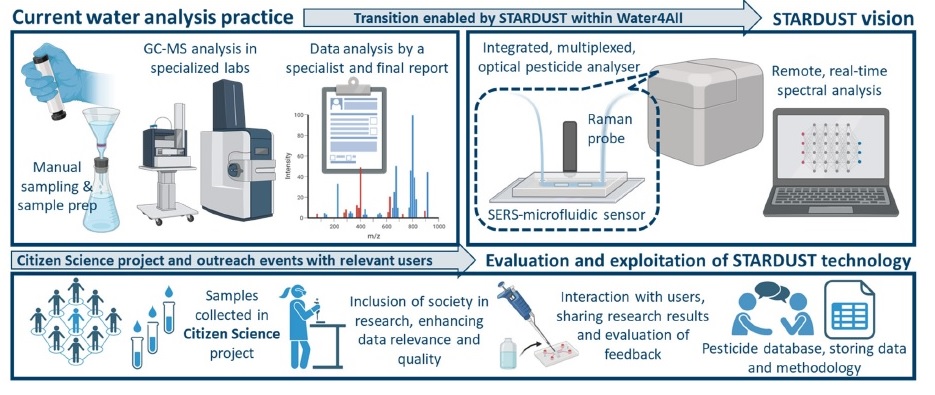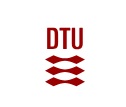Discovering the profound effects of extreme hydroclimatic events on the presence and persistence of essential pesticides, as highlighted by the Water Framework Directive, in our surface waters, sewer overflows, and groundwater can lead to a healthier future for our ecosystems.

credit to Elizaveta Vereshchagina
Heightened risk of pesticide contamination in water bodies
As hydro-climatic extremes intensify due to climate change, the repercussions on socio-economic, structural, and environmental sectors become increasingly severe. Among the challenges posed by these extremes is the heightened risk of pesticide contamination in water bodies during intense rainfall events, impacting biodiversity, ecosystem health, and the safety of drinking water sources. Unfortunately, current monitoring methods are insufficient to detect these rapid water quality fluctuations.
Develop optical system
Our goal is to develop an innovative, integrated optical system employing surface-enhanced Raman spectroscopy combined with microfluidics, supported by advanced spectral data processing techniques. This system will enable multiplexed monitoring of pesticides in both surface and ground waters, shedding light on the interplay between extreme hydroclimatic events and pesticide occurrences.
Capture water samples that provide insights into climate-related water quality impacts
Moreover, we will exploit rainfall forecasts to strategically time passive sampling and citizen scientist-coordinated events. By aligning sampling efforts with precipitation events, we aim to capture water samples that provide crucial insights into climate-related water quality impacts. These efforts will enable the identification of target pesticide compounds to be addressed with the developed sensor and a database of detected pesticides will be compiled and shared publicly.
A diverse array of expertise
The collaborative efforts of the STARDUST consortium bring together a diverse array of expertise. From nanotechnology, photonics, and microfluidics to spectral data analysis and water analysis, our partners SINTEF MiNaLab, INCDFM and IMT (Romania), IChF (Poland), DCU (Ireland), and DTU (Denmark) — are committed to advancing knowledge and developing practical solutions to address the pressing challenges in water quality.
Real-time monitoring technologies
Together we strive for a future where real-time monitoring technologies safeguard our water resources and mitigate the adverse effects of climate change on water quality and ecosystem health.








